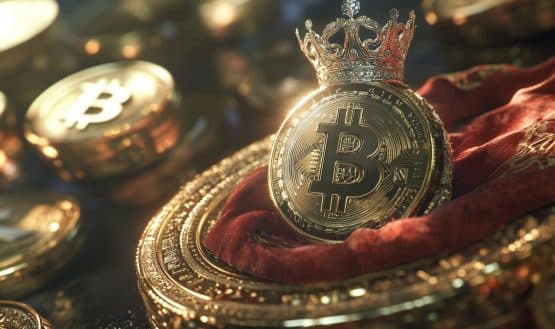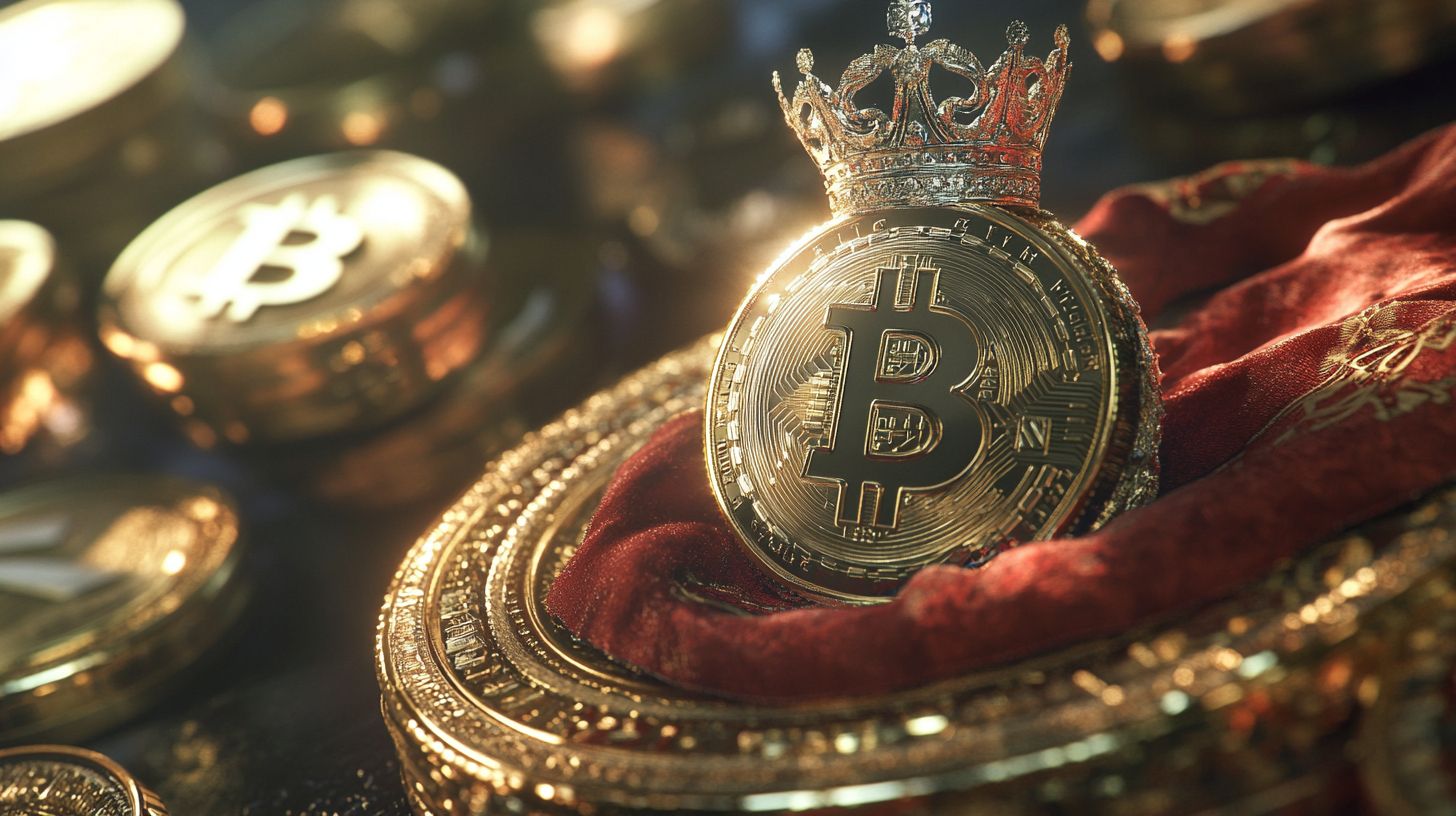Bitcoin maximalism is the idea that Bitcoin is the only crypto that matters. Not just the biggest one, but the only one people should care about in the long run. Ask a hardcore Bitcoiner and they’ll probably tell you everything else is either a scam or a distraction.
Bitcoin maximalists see Bitcoin as the most secure and honest form of value since it doesn’t depend on banks, governments, or any middlemen at all.
Whether you’re deep into crypto or just poking around, you’ll run into this mindset sooner or later. It’s everywhere. And even if you don’t fully agree with it, it helps explain a lot about why people in crypto think the way they do.
What do Bitcoin Maximalists Believe?
Maximalists think Bitcoin is the only crypto that really deserves to exist. From Ethereum to the newest meme coin, everything else is seen as a side project at best, or a scam at worst.
The core beliefs usually go like this:
- Bitcoin is the only truly decentralized and secure crypto.
- Altcoins are either pointless, risky, or going against what crypto was supposed to be.
- The end goal is to make Bitcoin the global money standard.
In their view, every new coin or project distracts attention from the real mission. They think that the more people focus on Bitcoin, the more likely we are to build a fairer system that works for everyone.
How did Bitcoin Maximalism Start?
Bitcoin Maximalism goes all the way back to the early days, when Bitcoin was pretty much the only digital currency that existed. The community was small and tight-knit, and most people were in it for one reason: to build something better than the current financial system.
People like Hal Finney, who actually talked to Satoshi Nakamoto, were central to shaping that early mindset. Satoshi’s writings focused on ideas like decentralization and sound money, which still form the backbone of what maximalists believe today.
When other coins started popping up, some folks saw it as a cool way to experiment. But others weren’t into it at all. To them, it felt like Bitcoin was finally getting off the ground, and all these altcoins were just noise. That’s when the whole Bitcoin-only mindset started taking root and turning into something bigger.
Why Do Bitcoin Maximalists Believe Bitcoin Will Win?
Bitcoin maximalists see BTC as the inevitable winner in the race for global digital money. Their confidence comes from a few key arguments.
First-Mover Advantage
Bitcoin was the first cryptocurrency, and that still matters. It has the strongest brand, the most secure network, and the widest recognition. People often compare it to digital gold because it holds value over time and is known around the world.
That head start gave Bitcoin a network effect that is hard to beat. The more people use it, hold it, and talk about it, the harder it becomes for any other crypto to catch up.
Decentralization and Security
Bitcoin’s security is one of its biggest selling points. It runs on a fully decentralized network powered by Proof of Work, where miners compete to validate transactions. This setup makes it extremely hard to shut down or manipulate.
Compared to other chains that may have central points of control or rely on more experimental consensus models, Bitcoin is seen as safer and more battle-tested.
Monetary Policy and Scarcity
Bitcoin’s fixed supply of 21 million coins isn’t going up, no matter what. Along with the built-in halving process that happens nearly every four years, this built-in scarcity is one of the biggest reasons why they see Bitcoin as better than fiat or most other cryptos.
In a system where governments and banks can just keep printing money, Bitcoin feels like a way out. It’s predictable, it doesn’t change on a whim, and it’s not vulnerable to inflation the way traditional currencies usually are.
Criticisms of Bitcoin Maximalism
Bitcoin maximalism is not without its critics. Some see it as too rigid, others as toxic. While it has a clear vision, not everyone agrees it’s right.
Dismissal of Innovation
One of the main criticisms of Bitcoin maximalism is that it shuts the door on innovation. Smart contracts, NFTs, and DeFi were all built outside the Bitcoin ecosystem. Platforms like Ethereum and Solana have taken the lead on those ideas.
People argue that Bitcoin moves too slowly and is too cautious. That focus on security comes at the cost of flexibility. Other blockchains have taken risks and explored new features, while Bitcoin has stayed in more familiar territory.
Tribalism and Toxicity
Bitcoin maximalists often get called out for being too aggressive. Some go beyond defending Bitcoin and actively attack any project that is not Bitcoin. It starts to feel less like a tech preference and more like a belief system.
This attitude shows up on social media, where debates quickly turn hostile. Developers working on other chains are often mocked or dismissed. For newcomers, this kind of gatekeeping can be discouraging, especially if they are curious about the broader crypto space.
Risks of Single-Asset Focus
Putting all your trust in one asset is risky, even if that asset is Bitcoin. Maximalists argue that Bitcoin is all you need, but history shows that spreading your investments can help reduce risk.
Bitcoin has had huge gains over the years, but it has also experienced major drops. Relying only on one asset leaves you vulnerable when the market turns. Even strong assets can stumble, and having other options can make a difference.
Prominent Bitcoin Maximalists
Several well-known figures have become faces of the Bitcoin maximalist movement. They regularly speak out in support of Bitcoin as the only real crypto worth holding and often criticize altcoins and other blockchain projects.

Saylor often compares Bitcoin to digital energy and sees it as a long-term store of value. He dismisses altcoins as unnecessary distractions and regularly speaks about Bitcoin’s potential to protect wealth against inflation.

Mow is also vocal about keeping Bitcoin simple. He’s criticized altcoins, especially Ethereum, and frequently calls out projects that promote complexity or rely on central control. He also has criticized the idea of “unit bias” in altcoins, arguing that their low prices mislead new investors.

Mallers positions Bitcoin as the future of payments, not just a store of value. He sees it as a way to escape the fees, delays, and control of traditional financial systems. His focus is more on utility and real-world adoption than investment narratives.

She’s introduced legislation aimed at giving Bitcoin a clearer regulatory status, while often warning against the risks of altcoins and unstable projects. Lummis uses her platform in government to push for Bitcoin as part of the future financial system. Recently, she introduced a bill to create a strategic Bitcoin reserve in the U.S.
Bitcoin Maximalism vs. Crypto Agnosticism
Not everyone in crypto believes that one chain should rule them all. Crypto agnosticism is the idea that multiple blockchains can coexist, each serving a different use case. This stands in direct contrast to Bitcoin maximalism.
What is Crypto Agnosticism?
Crypto agnostics believe that no single chain has all the answers. Bitcoin might be the best store of value, but Ethereum might be better for smart contracts. Solana might be more efficient for NFTs or gaming. Instead of choosing a side, they use what works best for each task.
This mindset is more flexible. It focuses on real-world utility and user experience rather than loyalty to a single asset.
Comparison of Ideologies
Bitcoin maximalism is all-in on one chain. It prioritizes security, stability, and decentralization above all else. It sees Bitcoin as the final evolution of money, treating other projects as scams or distractions.
Crypto agnosticism is more pragmatic. It views the crypto space as a tech landscape that is open to change, experimentation, and different tools for different problems. Investors in this camp usually spread their capital across multiple chains and projects.
Evolving Definitions of Maximalism
Not all maximalists think the same. Some are more open than others. Soft maximalists might support Bitcoin Layer 2s like the Lightning Network or even NFTs on Bitcoin, while still avoiding altcoins. Hard maximalists reject anything that is not native to Bitcoin.
There are also Bitcoin-only businesses that follow maximalist principles. These include wallets, exchanges, and communities that work exclusively with BTC. They believe in building a Bitcoin economy from the ground up.
Will Bitcoin Always Dominate?
Bitcoin’s been at the top since the beginning. It’s the name everyone knows, it’s got the biggest market cap, and it’s still the one most big institutions are paying attention to. But that doesn’t mean it’ll stay there forever.
There are plenty of reasons it might. The network is huge. It’s got the most users, miners, and trading volume by far. Most new investors still start with Bitcoin before checking out anything else. It also helps that Wall Street is warming up to it, with ETFs, company treasuries, and all that.
But there are cracks. Bitcoin moves slowly, and that’s kind of the point — it’s built to be secure and stable. Still, some people think it’s falling behind while other chains build smart contracts, games, apps, and anything else they can think of. If folks start caring more about utility than just store of value, Bitcoin might not look as dominant.
Then there’s outside pressure too. Regulators could come after mining for being bad for the environment. Or people might just shift to greener blockchains. And if something major ever went wrong on the technical side, that could shake things up fast.
So yes, Bitcoin is still leading and will probably be for a long time. But nothing’s guaranteed. It really depends on what people want from crypto, and the role that they want it to play in their lives.
Bitcoin Maximalism FAQs
What is Bitcoin Maximalism?
Who coined the term Bitcoin Maximalism?
Why do Bitcoin maximalists distrust other cryptocurrencies?
Is Bitcoin Maximalism good for the crypto space?
Can you be a Bitcoin maximalist and still use Ethereum or other chains?
What is the relationship between Bitcoin Maximalism and decentralization?
Is Bitcoin Maximalism fading as more blockchains develop?
How do Bitcoin maximalists view DeFi, NFTs, and Web3?
References
- How To Be A Bitcoin Maximalist (forbes.com)
- Saylor’s bitcoin juggernaut engineers another $21bn (ft.com)
- Altcoin unit bias ‘absolutely destroying’ crypto newbies — Samson Mow (cointelegraph.com)
- Congressman Nick Begich and Senator Lummis Introduce Landmark BITCOIN Act to Establish a U.S. Strategic Bitcoin Reserve (begich.house.gov)

